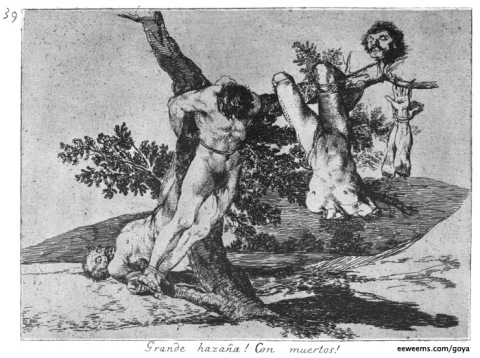Brain Edits
April 7, 2009 § 3 Comments
“Yet as scientists begin to climb out of the dark foothills and into the dim light, they are now poised to alter the understanding of human nature in ways artists and writers have not.” The New York Times, April 6, 2009
Or to be more precise—they are now poised to alter human nature in ways artists and writers have not.
I’m used to the revision process. When I was young, I resisted it, too attached to my words, especially the bits that stuck out like shiny metal from a teenager’s face. Eventually, it became my favorite part. I liked knowing I could improve something; I liked the deft snips and rearrangements that could keep the body of a story intact while making it mean something entirely different. Revision becomes fun when you realize it’s not only work but play. That’s where the scientists are now. But what drives change in the world? Necessity, utility and boredom—perhaps most importantly, consumer boredom. Birds have brilliant plumage for the same reason designers create new styles: Buy me.
My brain, edited, would not only be less of a minefield for me, it would be a different aesthetic experience for you. Maybe you enjoy my writing but wish you could just tilt the tone a bit, or shake out the parts you’re sick of. I wish she’d stop writing about THAT so much. Stop trying to be funny. Stop trying to be serious. Be the same but surprise me more.
I can think of many discrete ways of editing my husband, mother, lover, siblings—not for better or worse, but for change and highlight. If you’ve ever worked in Photoshop, you know what I mean. It’s not that you’re changing the soul of the image. Of course not. But: lighter or darker? What if you dialed up the blue of her eyes—and turned that guy behind her into wallpaper?
I might go a little nuts editing myself. Weed out all the memories that hold me back with their whisper of failure and the ones that embarrass me with their generic drone. Take out the days and months I was bored; the hangovers; most of 1983. I’d be sleek and wily, smart, ready to pounce on the future and bat it from paw to the outfield. I’d be happy to inform you I’d forgotten when we met, that we met, what you were like on the job or in bed, and why you think you matter.
Naturally someday I’d want to return to the trashed bits, sift through them like the stuff you leave in boxes in your parents’ attic. I mean, maybe you do matter, 1983. I know there were some good days; otherwise I would have slit my wrists. There must be vast pages of forgotten hours adding to parts of myself I treasure. You know how it is when you learn something so thoroughly you forget what it was like not to know it? You feel ignorant again; only being confronted with a real novice does the awareness of expertise return. If you can never see the base of the mountain, how do you know what counts?
Trauma reappearing in dreams and phobias sounds grim, and is, but think about that other complaint we have, that human life is too short for the species to learn much—for example, that war sucks. The only reason teenagers know this even vaguely is the horrifying stories told by their elders. These stories haven’t stopped war (partly because they’re often dishonest). On the other hand, we’re not starting a war every five minutes. Not quite.
Think of the Binghamton carnage. Watching TV coverage, for the susceptible, is drama and action without emotional consequence. What if that happened to you when you were told, We excised this memory at your request, but for your information, here are the facts. Maybe you’d take the stripped skeleton and over time feel nostalgia for imaginary flesh. Maybe you’d say, I wonder what that felt like? Maybe I should let myself be raped again.
If this sounds implausible, remember that lots of women have rape fantasies, just as lots of men and women have murder fantasies. We know we don’t want our fantasies to become true because we’ve heard the unvarnished stories. There are so many of these, we think we don’t need them; we can imagine how we’d feel. But are you sure that’s true? What if personal stories of horrors disappeared, or became very, very old?

Francisco Goya, Great Deeds Against the Dead
I do wish that quote hadn’t set itself up as an arts vs sciences conflict, with science finally arriving to save the day. That really annoys me. The scientists I know at the university would never be so blinkered or disrespectful; its the way science is represented in the media that does the damage.
Eternal Sunshine of the Spotless Mind
“Proust Was a Neuroscientist” does much to show that over a hundred years ago, artists, writers, and chefs like Escoffier intuited truths about the human brain and perception that scientists are only starting to approach now. Another great column.